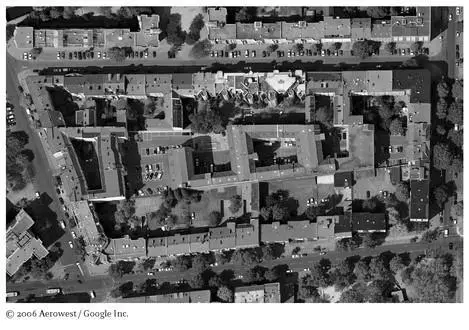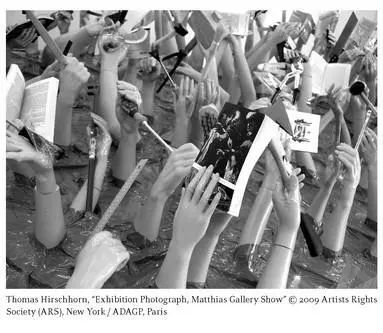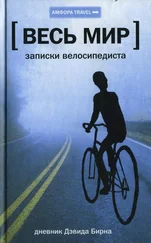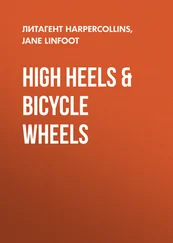Are our brains weirdly finite? Do we intuit this odd tit-for-tat idea? We’re familiar with blind people whose brains have changed, with new neural connections being established in the areas formerly allocated for sight. Is the same true with other psychic parts of ourselves? Do any of those psychological/mental clichés hold true? Do great creative geniuses necessarily have less common or business sense? Do extremely rational minds inevitably miss out on some wild, creative intuitions? Are sensuous people hopelessly disorganized? As one improves oneself in one area does another area necessarily shrink and suffer as a result? Is there a chart with sliding scales we can look at so we can be aware of how we’re doing on the psychic tally board?
Music Stripped Bare
Berlin is now hailed as the cultural center of Europe. Well, by some. In the afternoon I go gallery hopping with artist/designer Stefan Sagmeister. Everyone in the galleries is superfriendly and helpful without being at all pushy or solicitous, which is a real change from the chilly vibe one often gets in New York galleries. A lot of the galleries here are located in older buildings that have a curious structure. The city blocks are quite large, so often the buildings—offices, apartments, and now galleries—are in edifices that form the perimeter of the entire block, like a giant rectangular doughnut—a shape that leaves a massive empty space in the middle, hidden from street traffic and approachable from the street only via periodic tunnels in the doughnut.
These interior courtyards are massive. Some are so big that there is often another whole apartment structure built inside the first one, and sometimes yet another structure might nestle inside that one—like Russian dolls as an architectural model. Some of the interior buildings were formerly small factories, but now they are transformed into charming cafés with outdoor seating and spaces where the clientele leave their bicycles—often unlocked. The entrances to the new art galleries are often within these courtyards. The interiors of these galleries are not usually as massive as some elsewhere in the world, as they are in restored and reworked former offices rather than former industrial spaces.
Stefan and I talk about the fate of the CD, and of recorded music in general. Stefan has just been to South Korea, which he describes as being a few years ahead of us in some respects—he says no one there buys CDs anymore. In fact, when he wanted to buy a CD copy of something he’d heard he had to go to a specialty shop to obtain it—as one would in Europe or North or South America to buy a recording on vinyl.

We wonder about the fate of the images and design associated with LPs and CDs—something he’s been involved with quite a few times. He reminds me that the linking of image and music is a result of the fact that vinyl scratches easily, so it needed sturdy board packaging. And until relatively recently even those packages didn’t come with images, credits, liner notes, etc.—music packaging originally was generic. People happily enjoyed music for centuries before that without any accompanying visual aids or attractive packaging. However, I found out that when Alex Steinweiss designed an early album sleeve for Beethoven’s Ero ica symphony, the package caused sales to increase 800 percent. So design is nothing to sneeze at. The music package has evolved into an embodiment of a worldview represented not just by the music but also by the package, the performer, the band, the show, the costumes, the videos, and all the other peripheral materials. But it might soon be back to just the audio without all the rest of it thanks to the digital world, where many folks buy digital versions of just the one song they like, and the surrounding and accompanying materials and images are left behind or ignored. The era of the data cloud surrounding pop music as representative of a weltanschauung might be over. Stefan doesn’t seem nostalgic about it.
Political Art
We have dinner with Matthias Arndt, a local gallerist, and his girlfriend, an art historian. Matthias has moved his gallery from Mitte, where he first opened, to a big new space near the former Checkpoint Charlie, where there are clusters of new galleries. He says most of his sales are to collectors who live outside Berlin—and most of those are to collectors outside Germany. Despite the glut of galleries and artists here, the local community of potential buyers and curators doesn’t support the local artists much. They’re appreciated—at least in the sense of being collected—elsewhere.
The artists here do have it pretty good in another sense. Many incredible studios and living spaces are available here for much less money than in Williamsburg or East London. And they’re in the center of town too.
In Matthias’s gallery there is a piece I like by Thomas Hirschhorn of mannequin hands holding aloft a mixture of literary tomes and ordinary tools—it makes for a sort of hilarious intellectual “workers arise!” image. An idealized revolution—symbolically embodied on a (large) tabletop. In another era I could imagine this piece being an actual proposal for a large-scale monument that might have been made in the former East. Maybe this proposal for a monument might have been done by a high school senior using available materials: paperbacks rather than more visually impressive antique bound volumes, and puny screwdrivers and measuring tapes rather than larger hammers and sickles. And of course, like a junior high school science project, Hirschhorn’s piece is held together with packing tape.

The “Problem” of Beauty
Matthias mentions a young Leipzig-schooled painter who has now become very popular—an artist who Matthias passed on representing some years ago. “Too beautiful” was what he thought of the work then. He says he has a problem with beauty—and realizes that this prejudice is not always in his best interests. Stefan quotes the late Tibor Kalman—the designer for whom Stefan worked and who also often worked with me—as saying, “I have no problem with beauty, but it isn’t very interesting.”
Matthias says beauty, being ephemeral, evanescent, and impermanent, reminds us of death. I would have never put an equal sign between the two myself—this statement seems overly romantic à la Rilke, but I see his point. The morbidity of beauty. Huh. I suppose when one is referring to a person—a strikingly beautiful young man or woman, for example—it rings true, as their beauty will inevitably fade, and will eventually be gone completely. So, by that reasoning, leafing through a fashion magazine is essentially a tragic and melancholy experience. Well, it might be anyway, but for other reasons. But what about people who age gracefully—who become more interesting, or nontraditionally beautiful, with age? A trip to the Louvre in Matthias’s view would be downright depressing. I often think of beauty in a song (a thing that disappears as soon as you hear it) or in a fleeting view of a landscape, which renews itself (we hope), or of the kinds of objects that sometimes become even more beautiful as they age and begin to show signs of wear and tear. My friend C says the same thing sometimes happens with people—some of them grow into their faces, for example, looking merely childlike when young, and not that interesting, but becoming more themselves as they begin to show some age. They’re not really beautiful when young, at least not deeply.
Читать дальше











